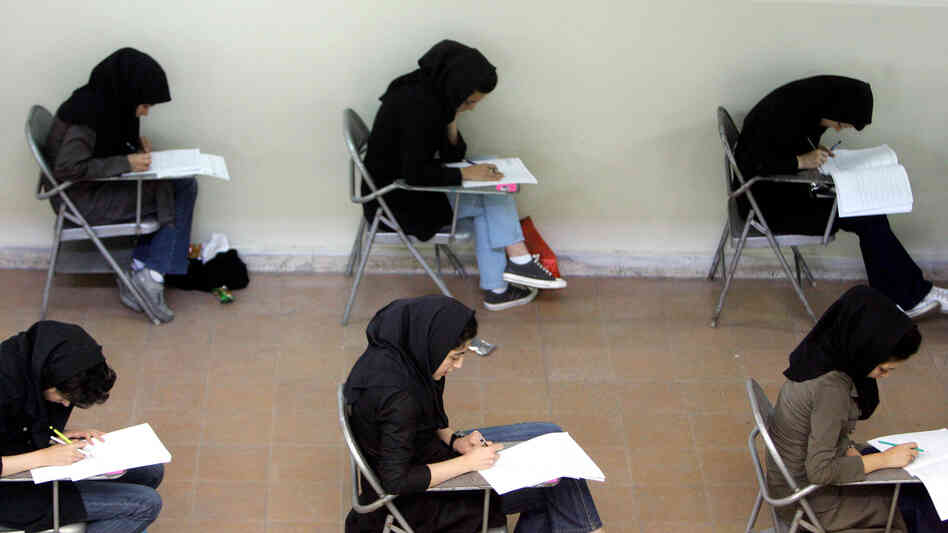Once the Court granted probable jurisdiction in McCutcheon v. Federal Election Commission, it seemed likely, and was confirmed at oral argument, that a majority of Justices viewed aggregate contribution limits as unjustified under the First Amendment. The predictable reactions to the decision fell into two longstanding camps: the defenders of political freedom versus the guardians of regulation. As reflected by the divided Court, there are those who seek to minimize government intrusion into political speech and those who believe considerable government regulation is necessary to safeguard democracy and prevent corruption.
Critics of the case are making the direst predictions since, well, Citizens United. In his 2010 State of the Union address, President Obama personally lectured members of the Court and predicted a “stampede” of money resulting from that decision, including money from foreign sources. The amount of money spent in subsequent elections rose, although at a rate no higher than in preceding elections. The foreign money has yet to show up, perhaps that is because it is illegal for foreigners to contribute in American elections and courts since Citizens United upheld the ban. Now some, including Justice Breyer in his dissent in McCutcheon (asserting “grave problems with democratic legitimacy”), seem to be predicting the collapse of our democracy.
The nation was not an illegitimate democracy and did not collapse in the first two hundred years or so of its existence, when there were few or no regulations of campaign financing. It is hard to see how, when, or why the McCutcheon case and its limited holding will now destroy the foundation of our democracy. It is more likely that the current predictions, like President Obama’s prediction after Citizens United, will not come true and that the underlying reason for the hysteria may be a growing realization that the First Amendment continues to curtail the extent to which advocates of campaign finance regulation can regulate.
The practical effect of McCutcheon is that individuals will still be subject to a limit (currently $ 2600) on contributions to any one candidate and higher limits on contributions to any PAC or party committee. Now, however, donors will no longer be limited in the number of candidates or committees they may support. The dissent indulges in elaborate speculation that individuals after the ruling theoretically may contribute to every candidate and every committee and thereby dispense over $ 3 million in contributions. This is a little like saying that because Nazis have a First Amendment right to parade in Skokie, Illinois, we can expect Nazi parades to break out in every city and town in the country. The fact is there aren’t that many wealthy individuals and there still are laws that prohibit earmarking and laundering. Moreover, some people may be rich but they are not stupid. They will not irrationally give money to candidates they don’t know, or don’t agree with or who don’t have a chance of winning or who don’t need the money or who may not even be in contested races. Mr. McCutcheon had the charming patriotic habit of making his checks payable in the amount of $ 1776. He gave checks to sixteen candidates before encountering the unconstitutional limit. He stated that there were ten more candidates that he wanted to support with similar donations but legally could not. Aren’t contributions to twenty-six candidates a more likely scenario than Justice Breyer’s extravagant hypothetical, which presumes contributions to 468 candidates?
There is no denying that some individuals like Mr. McCutcheon will increase the number of candidates that they support with their limited donations. This will result in modest increased funding in a system that during 2011-2012 saw $ 7.2 billion raised and spent. (Approximately $ 1 billion was raised and spent by President Obama’s reelection committee and the Democratic National Committee.) The national parties are potentially greater beneficiaries, because they no longer will have to compete for a portion of a supporter’s overall limit on contributions to parties and committees. Any increase in candidate or party funding is a positive development since the money is still subject to limit, publicly disclosed, and received by the electorally most accountable participants in politics.
While the relative practical effect of McCutcheon is modest, the continuing effect on future campaign reform may not be. In a forty-year stream of cases starting with Buckley, the Supreme Court has questioned and struck down a litany of campaign finance schemes. The unconstitutional statutes included: limits on how much a candidate’s campaign can spend after collecting limited donations; limits or bans on how much an individual, a PAC, or a party committee could spend without collaborating with a candidate; a ban on contributions by minors; a contribution limit of $ 400 (too low); public financing programs that punished or rewarded persons who did not participate or who made independent expenditures; increased contributions for candidates who were opposed by candidates who fund their own campaigns; and independent spending by corporations and unions. At the same time, Justice Clarence Thomas has been the only Justice who advocated overturning Buckley’s allowance for contribution limits. His concurrence in McCutcheon did so again.
The Court’s jurisprudence sends a clear message to Congress and state legislators: “You can impose a reasonable limit on how much a contributor can donate to a candidate’s campaign or to committees that donate to candidates, but you cannot limit or ban what else a donor does with money.” This message started with Buckley. CitizensUnited made the point emphatically. McCutcheon is a logical and consistent extension. Advocates of greater regulation still seem to be going through the five stages of grief over the fact that many of their ideas are simply unconstitutional. After Citizens United they went through denial and anger. Now they are somewhere between bargaining and depression. If they reach acceptance, the final stage, they should focus on finding constitutional ways to regulate money in politics. Chief Justice Roberts, writing for the Court, suggested mandatory public disclosure, solicitation rules and restrictions on transfers between and among committees in addition to existing rules. Of course any laws must avoid vagueness and overbreadth. But the ultimate goal should be to promote transparency, avoid unnecessary burdens, and provide avenues for sufficient funding of political debate and associational activities. The McCutcheon decision simply underscores that such goals can be accomplished without violating the First Amendment and without jeopardizing democracy.
Jan Witold Baran is a partner at Wiley Rein LLP where he heads the Election Law and Government Ethics Group. He has argued four Supreme Court cases and represented parties in several others. His amicus brief in Citizens United on behalf of the U.S. Chamber of Commerce was cited by the Court in its opinion. He is the author of The Election Law Primer for Corporations, published by the American Bar Association.
In association with Bloomberg Law
Symposium: McCutcheon and the future of campaign finance regulation




















